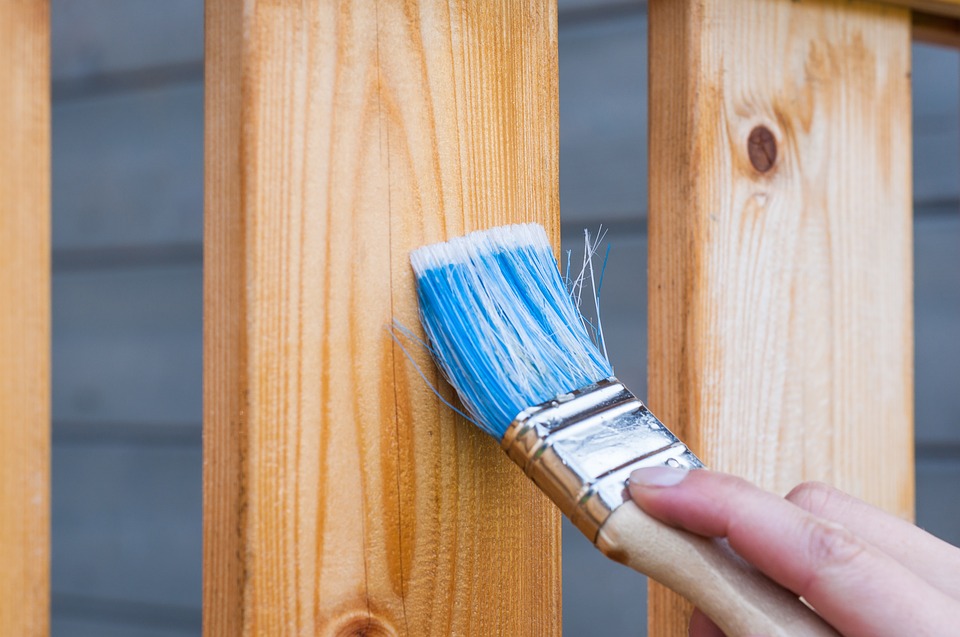The term “DIY” can mean many different things to many different people, depending on the words that follow it. From DIY fancy dress to DIY wedding decorations, the universal initialism of “Do It Yourself” can be applied to pretty much anything and everything… provided you don’t mind getting stuck in.
That being said, as a standalone term, DIY typically relates to handiwork around the house and can be a great way to save money on home improvement projects. If you don’t mind getting your hands dirty, DIY could be for you! With that in mind let’s roll up our sleeves and get to work, as we peel off the lid on the essentials of DIY.

How to DIY
When it comes to DIY in the home, the variety of tasks can be extremely vast and wide-ranging, including everything from re-wiring a plug to fixing a leaky tap. As such, a universal guide to all these tasks is non-existent; however, there are a few common themes that each job will share.
To help get you started on your DIY quest, here are a few simple rules to follow when taking on a task that’s outside of your comfort zone.
Do your homework
Before beginning any DIY task, it’s important to know what lies ahead.
While ploughing through your dining room wall with a sledgehammer may seem like a great way to expand your living room (and relieve some stress), the consequences could leave you picking up the pieces for a long while afterwards.
Doing your homework on a DIY task can help you adequately prepare, while also providing knowledge and knowhow on how to do the task properly. Luckily, Google can be your best friend in situations like this and step-by-step instructions can be found on a multitude of tasks in mere seconds.
Meanwhile, to make things completely idiot-proof (in theory), YouTube is also loaded with hundreds of thousands of instructional videos, designed to help you expand your mind, broaden your horizons and reach the DIY promised land in one piece.
Tools of the trade
They say a bad worker always blames his tools… so if you don’t have any tools, you’ll have no-one to blame if it all goes catastrophically pear-shaped!
Joking aside, a well-stocked toolbox can be a useful addition to any home. Items like a hammer, spanner, pliers and a set of screwdrivers can come in handy surprisingly frequently, whether it’s to tighten a loose screw or knock in a protruding nail.
You may also find that certain jobs require more than just your standard toolbox essentials. Electrical items and power tools like a circular saw or electric drill can also be useful to have, depending on the task at hand.
While other tasks may require more specialist items – such as a tile cutter or a floor sander – it may be worth considering how much use you are likely to get out of a job-specific item. If it’s a one-off job that won’t require revisiting, it could be more cost-effective to rent rather than buy your tools outright.
Specialist tools can be hired at a variety of outlets nationwide and could be a good way to keep your outgoings to a minimum.
Know your limits
DIY can be a fantastic way to save some money on a small job or menial repair task. However, if you’re dealing with something that’s totally outside of your knowledge and expertise, with a range of complexities attached, it may be worth reassessing the situation and, more importantly, your capabilities of completing the task successfully.
There’s no shame in admitting you’re out of your depth and knowing when you don’t know can be the difference between a job well done and job that needs redoing. What’s more, blindly sailing into the DIY abyss without a clear view of where you going can be extremely dangerous, particularly if you dealing with elements like gas and electricity.
Safety first
Following on from our last point, safety should always be top of the list when it comes to DIY. In fact, it should be the title of the list, written in bold and underlined… twice!
DIY in the home can involve a multitude of dangers, particularly if you’re new to home improvements. Even a simple task like hammering a nail can quite easily lead to a broken finger, so caution should be exercised at all times.
Sensible risk assessment is also hugely important. If you’re painting the ceiling while teetering out-stretched on a rickety ladder, all while your cat sleeps underneath on the glass coffee table, chances are you may want to reconsider your approach.
Whenever you’re attempting DIY, you should also bear in mind the clothes you wear too. This doesn’t just extend to overalls and old threads that you don’t mind getting ripped, dirty or ruined – it also extends to safety gear. Protective gloves can come in handy if you’re dealing with sharp objects that fragment – like glass, bricks and tiles – while safety goggles can quite literally save your vision if a rogue shard or shaving goes airborne.
When it comes to real DIY expertise, there’s no substitute for professional knowledge. If you want to expand your home improvement knowhow, why not consider a course with Access Training? Our vocational courses can help you achieve first-hand knowledge in a wide variety of skills – including electrical, gas and plumbing courses – making even the most daunting of DIY duties a doddle.
Get in touch today!